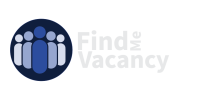Introduction
You’ve got a job interview coming up, and you’re excited to show off your skills. But how do you impress and engage the interviewer? A great resume can help you stand out from the crowd and get that dream job. Here are some tips to make your resume more effective:
Make a list of people you admire
Make a list of people you admire, and use this as your guide for the skills and characteristics that would be necessary to have in order to become successful in that field.
Your list should include at least five people, but there’s no limit on how many names you can add.
If you have multiple careers in mind, make a separate list for each career goal.
Make a list of companies you think are cool
Make a list of companies you think are cool. In Glassdoor and LinkedIn, do some research on the company’s culture, mission statement and employee reviews. Then write why you want to apply in that company, especially if it aligns with your overall plans or career goals.
Write down the job role titles you would be interested in. Maybe they include product manager or assistant brand manager at a marketing agency, or business development associate at a software startup? Write them all down so that when writing your resume later on, they come easily into mind!
Research your potential employer
Before you apply for a job, do your homework. Research the company and find out what kind of culture they have. Find out what they stand for and how they treat their employees and customers. Learn about the company’s goals, who works there and who has worked there in the past (this will give you an idea of whether or not this is a place that values growth over time).
Check company reviews in Glassdoor and LinkedIn
As you research companies, it’s a good idea to check out the company reviews on Glassdoor and LinkedIn. These are valuable resources for learning how a company is perceived by its employees. You can find out what the culture of a particular company is like and whether they’re growing or shrinking in terms of employees, which can give you an idea of whether or not this might be a good fit for you.
Write why you want to apply in that company
It’s time to start writing your cover letter. Your cover letter should be addressed to the hiring manager, and it should be no more than one page long. If you have more than one page of information, then you’re writing an autobiography and not a cover letter.
In your cover letter, make sure that you explain why you want to work for this particular company or organization. You can also explain how much research you’ve done on the industry or business in question; if there was an event that led up to your decision—for example, if someone recommended them or told them about their company—then mention that as well!
Write why that job role fits with your overall plans and career goals
You’re a busy person, and there are many things you have to do. When writing your resume, it’s tempting to just throw together some bullet points about your experience and call it a day. However, if you want employers to take notice of you—and more importantly hire you—you need to put in the extra effort.
To make your resume more effective, take advantage of the fact that almost all job descriptions include an objective or purpose statement at the top of their document. This section typically lists out why someone should work for this company and how they will help achieve those goals. For example:
We are looking for an entry-level employee who is eager to learn new skills from experienced staff members; someone who can thrive in fast-paced environments with tight deadlines; someone who has great communication skills as well as strong attention to detail; someone who is willing to grow within our organization over time by taking on additional roles within our team (if desired).
In other words: We need people like you! Use this information as a jumping off point when writing yours—it will give you much better insight into what employers actually want than simply listing off previous jobs or responsibilities under each position listed on your resume would provide.
What to include while writing effective resume.
Action Verbs:
Include action verbs in your resume. Use these words to explain what you were doing and how you contributed to your team’s success. For example, instead of saying “I was responsible for developing marketing plans,” use a more specific verb phrase such as “I developed five integrated strategies that increased sales by 15%.” Action verbs help demonstrate the ways in which you’ve made meaningful contributions at past jobs and will help you stand out from other applicants.
Numbers & Percentages:
Quantify achievements whenever possible with numbers and percentages. Include the dollar value of savings in cost reductions or increases in revenue streams, if possible. It’s also helpful to mention how many people benefited from projects or programs during your tenure on each job—for example, “Increased sales by 15% across 30 states resulting in an additional $1 million revenue per year.” To make your resume even more impressive, include references such as client names when possible so they can verify this information if they’re contacted by a hiring manager or recruiter looking into hiring you! You’ll want those references ready too just keep them updated with new information about yourself after leaving one company for another job opportunity elsewhere so they know exactly where things stand between all parties involved should something go wrong somewhere down line some day…
Conclusion
There are many ways in which you can make your resume more effective. You can simply ask your friends and family members for feedback, or you can use tools like this one to get a second opinion. Remember that it’s not just about what other people think; it’s also about what you think! And remember that resumes are not static documents—you should be constantly updating them as you progress through your career.





